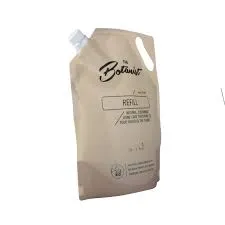- Afrikaans
- Albanian
- Amharic
- Arabic
- Armenian
- Azerbaijani
- Basque
- Belarusian
- Bengali
- Bosnian
- Bulgarian
- Catalan
- Cebuano
- chinese_simplified
- chinese_traditional
- Corsican
- Croatian
- Czech
- Danish
- Dutch
- English
- Esperanto
- Estonian
- Finnish
- French
- Frisian
- Galician
- Georgian
- German
- Greek
- Gujarati
- haitian_creole
- hausa
- hawaiian
- Hebrew
- Hindi
- Miao
- Hungarian
- Icelandic
- igbo
- Indonesian
- irish
- Italian
- Japanese
- Javanese
- Kannada
- kazakh
- Khmer
- Rwandese
- Korean
- Kurdish
- Kyrgyz
- Lao
- Latin
- Latvian
- Lithuanian
- Luxembourgish
- Macedonian
- Malgashi
- Malay
- Malayalam
- Maltese
- Maori
- Marathi
- Mongolian
- Myanmar
- Nepali
- Norwegian
- Norwegian
- Occitan
- Pashto
- Persian
- Polish
- Portuguese
- Punjabi
- Romanian
- Russian
- Samoan
- scottish-gaelic
- Serbian
- Sesotho
- Shona
- Sindhi
- Sinhala
- Slovak
- Slovenian
- Somali
- Spanish
- Sundanese
- Swahili
- Swedish
- Tagalog
- Tajik
- Tamil
- Tatar
- Telugu
- Thai
- Turkish
- Turkmen
- Ukrainian
- Urdu
- Uighur
- Uzbek
- Vietnamese
- Welsh
- Bantu
- Yiddish
- Yoruba
- Zulu
Understanding the Importance of Sealing Units in Industrial Applications
Understanding Sealing Units Importance and Applications
Sealing units play a crucial role in various industries, ensuring that operations run smoothly and efficiently while preventing leaks and contamination. These essential components are designed to provide a tight seal around moving parts in machinery and equipment, protecting against external elements such as dust, moisture, and chemicals. Their significance cannot be understated, as they are fundamental to the longevity and reliability of numerous devices, from automotive systems to industrial machinery.
A sealing unit essentially consists of materials that can compress and conform to the surfaces they are sealing. These materials are selected based on their physical properties, such as temperature resistance, chemical compatibility, and mechanical strength. Common materials used in manufacturing sealing units include elastomers, plastics, metals, and composite materials. Each material offers unique advantageous characteristics suited for specific applications.
One of the primary applications of sealing units is in the automotive industry. Vehicle engines, transmissions, and differentials rely on these components to prevent oil and fluids from leaking, maintaining optimal performance and preventing costly repairs. The sealing units used in automotive applications must withstand extreme temperatures and pressures, which makes the selection of the appropriate materials crucial for durability.
In addition to automotive applications, sealing units are prevalent in the food and beverage industry
. Here, they are essential for maintaining hygiene and preventing contamination. Sealing units designed for food applications must comply with stringent health regulations, which often dictate that materials be both durable and non-toxic. These units are found in packaging machines, mixers, and processing equipment, ensuring that food products remain safe for consumption throughout their production and packaging processes.sealing unit

The pharmaceutical and chemical industries also heavily rely on sealing units. In these sectors, precise seals are pivotal for containing volatile substances and preventing any leaks that could pose safety risks or lead to environmental hazards. Sealing units in these applications are typically manufactured from materials that can withstand aggressive chemicals and high pressures, ensuring both safety and compliance with industry standards.
Another important application of sealing units is in the energy sector, particularly in oil and gas exploration. Sealing units are critical for downhole equipment, where they protect against high pressures and aggressive chemical environments. Proper sealing ensures that hydraulic fluids remain contained, which is vital for the operation of drilling rigs and production facilities. The failure of these seals can lead to significant operational disruptions and environmental disasters, underscoring the importance of high-quality sealing units.
As technology advances, the design and manufacturing of sealing units have also progressed. Innovations such as 3D printing and advanced polymers are enabling the creation of seals that are not only more effective but also more cost-efficient to produce. Additionally, smart seals with embedded sensors are being developed to provide real-time monitoring of seal integrity and performance. This proactive approach allows companies to address potential failures before they lead to leaks or equipment failure.
In conclusion, sealing units are indispensable components across multiple industries. Their ability to prevent leaks, maintain hygiene, and ensure the smooth operation of machinery is vital to commercial success and safety. As industries evolve and technology advances, the demand for effective sealing solutions will continue to grow. Investing in high-quality sealing units not only enhances the efficiency and reliability of equipment but also plays a critical role in safeguarding the environment and public health. As we look to the future, ongoing innovation in this field will further improve sealing technologies, catering to the increasingly complex demands of modern industries.













